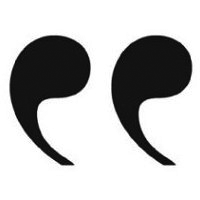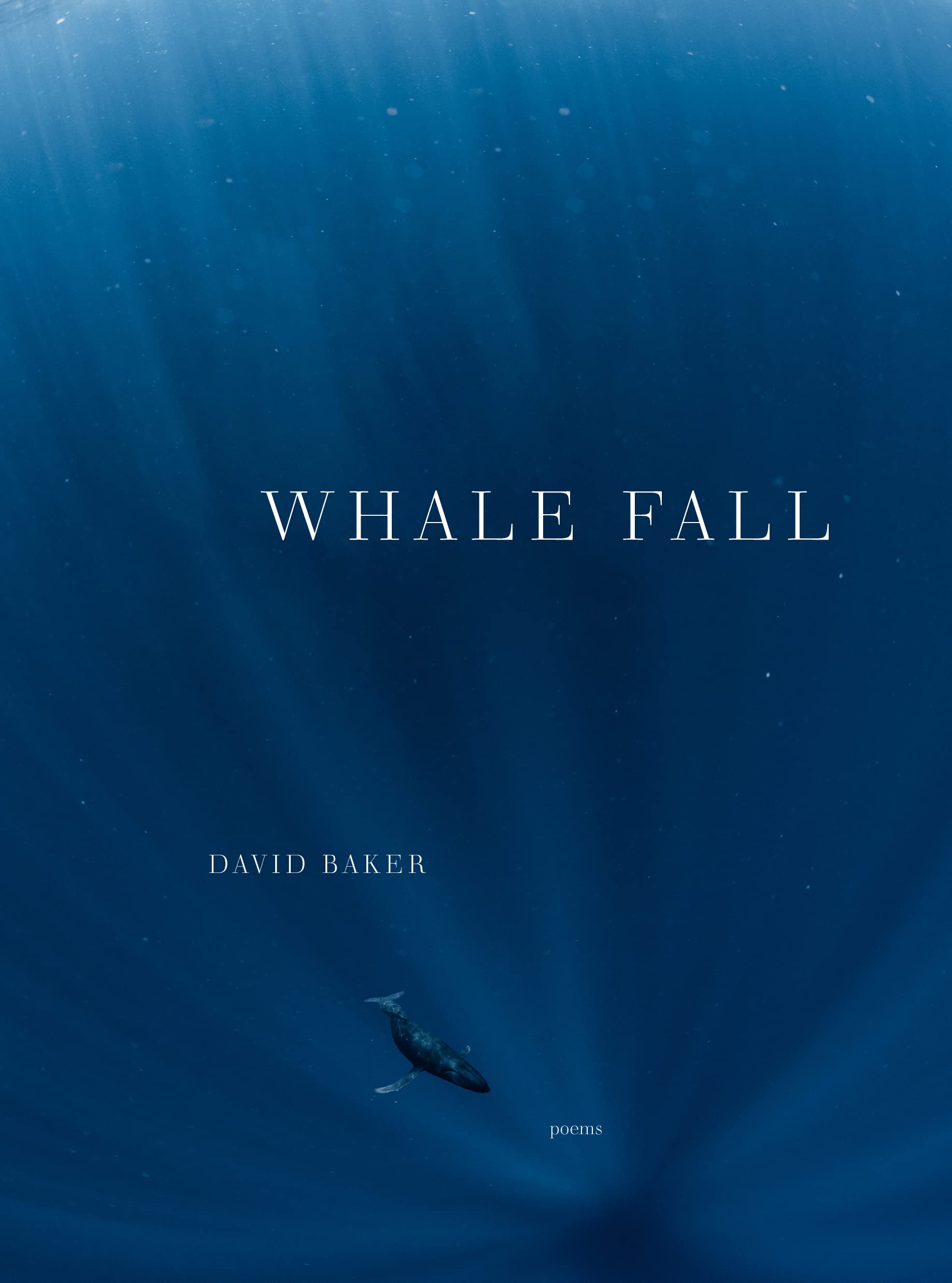Acclaimed as an essential voice of the American Midwest, David Baker expands both his environment and his form in his eleventh collection. Whale Fall is about time, measured in the wingbeats of a hummingbird or the epochs of geological change, and about place, whether a backyard in Ohio or the slopes of a melting glacier. In its exquisite, musical title poem, a deft hybrid of eco-poetic alarm and intimate narrative of illness, Baker transports us to the deep sea as a single whale carcass falls, decays, and is reinhabited by a cosmos of teeming lives. Amidst climate change, catastrophe, and viral disease, each of these poems is an echolocation, emitting its song to the vastness of the world.
From “One September”
The sound lifts and breathes, like a certain music of the sea,
if the sea were still here, as it will be, again, in another age—
 From the shadow of the garfish to the memory of seabed in Ohio sandstone, nothing appears to be too slight or too immense for David Baker’s powers of lyric transformation. In book after eloquent book, his artistry has become more purely his own: pared down to essentials while refining its scope of generous inclusion. Baker’s method, like his subject, is the fine pulse of human encounter: here in its most distillate manifestation.”
From the shadow of the garfish to the memory of seabed in Ohio sandstone, nothing appears to be too slight or too immense for David Baker’s powers of lyric transformation. In book after eloquent book, his artistry has become more purely his own: pared down to essentials while refining its scope of generous inclusion. Baker’s method, like his subject, is the fine pulse of human encounter: here in its most distillate manifestation.”
– Linda Gregerson
 A masterful and moving new volume from a “peerless poet of the natural world”
A masterful and moving new volume from a “peerless poet of the natural world”
– New York Times Book Review
General description of the title poem, “Whale Fall”
David Baker
“Whale Fall” is a seven-part lyric sequence—an ecopoem made of poems—that examines the dying and extinction of animals, especially of sea life. This new project follows many years of my writing about inland nature and the American Midwest. Lately I have observed and studied whale-pods off the coasts of Iceland and Cape Cod and have been deeply involved in research on everything from oceanic plastiglomerates to rates of land and sea-animal extinction to whale fall. Whale fall, I should clarify, describes the three-part process of a whale’s death and its slow descent to the deep-ocean floor where its carcass is likely to become the hub of a community of life-forms that feed on and live “inside” or “on” the remains.
At the same time of this ecological study, I have been researching my own chronic illness (chronic fatigue/immune deficiency syndrome; or ME, myalgic encephalomyelitis) and the relation of environmental degradation to wellness and illness—the health of the environment and eco-sphere as well as human health. In fact, “Whale Fall” was written over three years and evolved from three separate poems into the present sequence. The first of the original poems was “about” the phenomenon of “whale fall” and the death of a single humpback. The second poem dealt with my personal battle with CF/IDS/ME from my diagnosis (1993) and ongoing struggle with the disease (1994-2000) to gradual remission and the disease’s recurrence in 2015. The third was a poem about my infant daughter and about being a father with a chronic illness. As I revised, I found myself blending these narratives, connecting one kind of disease or uneasiness to another, linking the extinction of species to a single person’s prospect of dying. As I revised, I also took on a concurrent search for appropriate forms for each narrative.
About the form/s of “Whale Fall”: the descending stanzas in sections 1 and 3 are formed out of ruptured decasyllabics, as a way to suggest of the sinking and taking-apart of the carcass of the whale. These sections tend to sink or push vertically down the page. On the other hand, the couplets of other sections—composed in syllabics and half-rhyme—hope to suggest a movement both more lyrical and more lateral, floating, or at least sinking more slowly. There are many voices throughout—doctors, daughters, journalists, poets, teachers, as well as the self. There are prose documentary accounts of actual news items, as well, and a braiding of all these tactics and languages. In the final section, where the humpback carcass settles at last on the ocean bottom, the form and syntax elongate and dissolve, yet also maintain a sort of galaxy of “life everlasting,” to use biologist Bernd Heinrich’s term.



